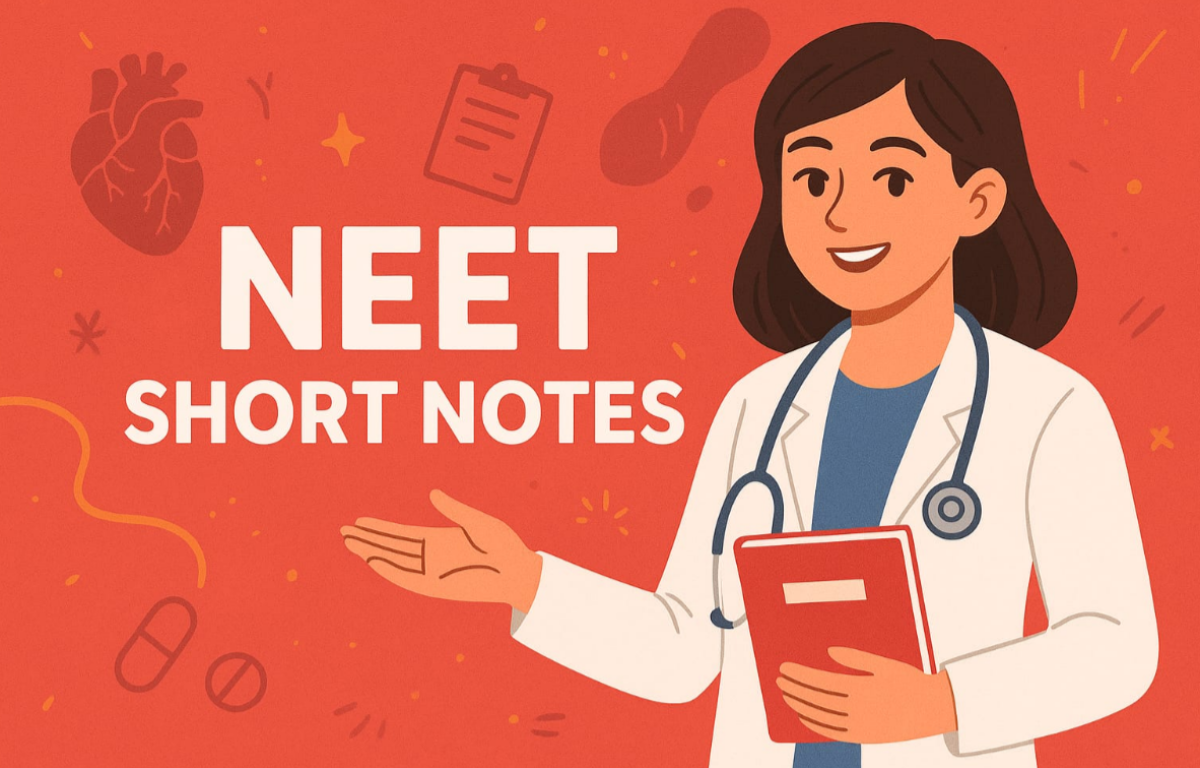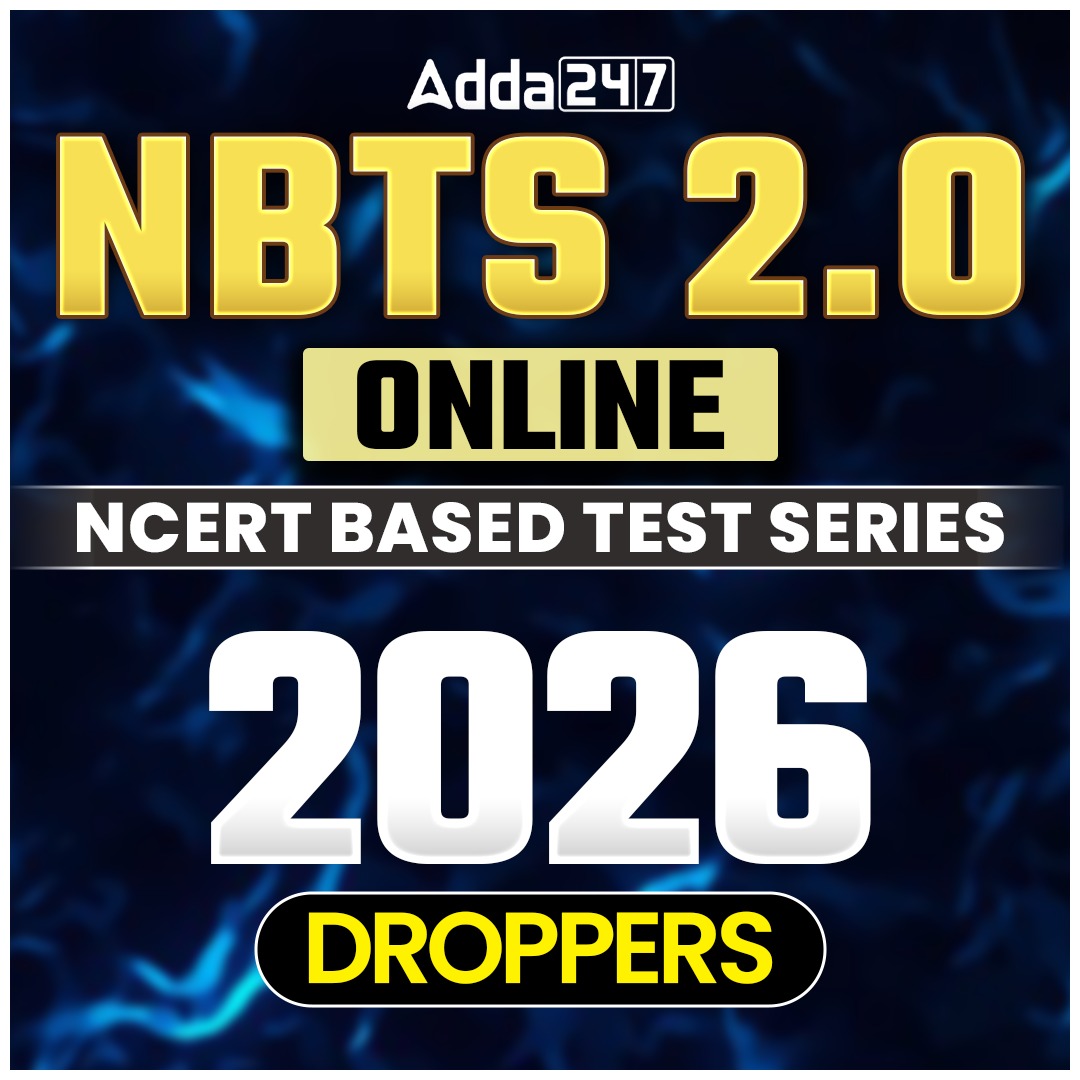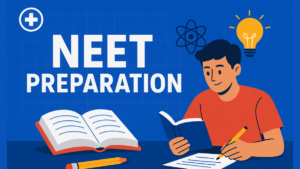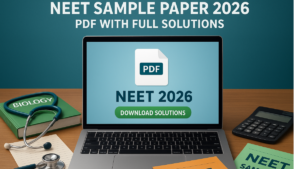NEET Short Notes: Cracking the National Eligibility cum Entrance Test – Undergraduate (NEET UG) is a dream of every medical aspirant, but some give up their dream just because they think that the journey might not be easy. Whether you are in Class 11th, 12th, just passed out, or even a dropper, the pressure of covering such a vast syllabus might feel overwhelming. No worries! The latest NEET Short Notes are here to make things a little simpler. These smartly designed student-friendly notes help to revive faster, remember key concepts, and focus only on what really matters.
These notes cover everything from important formulas in Physics to tricky reactions in Chemistry and detailed diagrams in Biology. In this article, candidates can find the latest NEET subject-wise Syllabus, important topics, and the benefits of using short notes, along with toppers’ proven tips.
NEET 2026 Exam
The National Eligibility cum Entrance Test, commonly known as the NEET exam, is held every year for both undergraduate and postgraduate students across the country. It is India’s biggest medical entrance exam, conducted by the National Testing Agency (NTA) for students who wish to get admission into various medical courses like MBBS (Bachelor of Medicine, Bachelor of Surgery), BDS (Bachelor of Dental Surgery), and AYUSH courses (like BAMS, BUMS, BHMS, etc.), and many others in both government and private universities and colleges.
The exam consists of 200 multiple-choice questions (MCQs), out of which candidates are required to attempt any 180 questions. Anyone who has successfully completed their Class 12 with Physics, Chemistry, and Biology is considered eligible to take the NEET Exam. Every year, lakhs of aspirants compete for a limited number of seats, so if you want to stand out and get your seat booked, smart preparation with the right resources can become your best buddy.
| NEET UG 2026 | |
| Name of Examination |
National Eligibility cum Entrance Test (NEET)
|
|
Exam Conducting Body
|
National Testing Agency
|
|
Exam Type
|
Single Day Exam
|
|
Total Sections
|
4
|
|
Subjects (Question Asked From)
|
|
|
Exam Duration
|
3 hours (2 PM to 5 PM)
|
|
Total Number of Questions
|
180 questions
|
|
Type of Questions
|
Multiple Choice OMR-Based Question Paper
|
| No. of Questions Asked Section-wise |
|
|
Medium of the Exam
|
13 (English, Hindi, Assamese, Bengali, Gujarati, Marathi, Tamil, Telugu, Oriya, Malayalam, Kannada, Punjabi, and Urdu |
| Total Marks | 720 Marks |
|
Marking Scheme
|
|
NEET Short Notes for Better Preparation
NEET short notes are concise, chapter-by-chapter summaries found in NEET short notes facilitate quicker and more efficient revision. During exams, these notes give you a quick overview of everything that matters rather than requiring you to sift through heavy books. In order to improve accuracy and speed, students should practice NCERT questions, past year questions (PYQs), and mock tests in addition to using brief notes. Because they help students remember material quickly in the exam room and increase their confidence, these notes are particularly beneficial for last-minute revision.
- Key formulas and equations – for solving numerical problems in Physics and Chemistry.
- Important diagrams and flowcharts – especially useful in Biology for better visualization and memory.
- Quick definitions and terms – to revise essential concepts without wasting time.
- Highlighted NCERT-based facts – since most NEET questions are directly based on NCERT.
NEET UG 2026 Syllabus
Although the NEET syllabus is extensive, it can be managed with careful preparation. It mostly covers material from the Physics, Chemistry, and Biology NCERT books for Classes 11 and 12. Students should balance physics and chemistry while concentrating more on biology because it has the highest weight. Candidates who are familiar with the syllabus are better able to plan their studies, steer clear of pointless subjects, and edit their work efficiently. The subject-specific NEET (National Eligibility cum Entrance Test) syllabuses for biology, chemistry, and physics are listed below.
NEET Chemistry Syllabus
| NEET Chemistry Syllabus 2026 |
| NEET Physical Chemistry syllabus |
| Some Basic Concepts in Chemistry |
| Atomic Structure |
| Chemical Bonding and Molecular Structure |
| Chemical Thermodynamics |
| Solutions |
| Equilibrium |
| Redox Reaction and Electrochemistry |
| Chemical Kinetics |
| Inorganic Chemistry Syllabus for NEET |
| Classification of Elements and Periodicity in Properties |
| P-Block Elements |
| d- and f- Block Elements |
| Coordination Compounds |
| NEET Organic Chemistry syllabus |
| Purification and Characterization of Organic Compounds |
| Some Basic Principles of Organic Chemistry |
| Hydrocarbons |
| Organic Compounds Containing Halogens |
| Organic Compounds Containing Oxygen |
| Organic Compounds Containing Nitrogen |
| Biomolecules |
| Principles Related to Practical Chemistry |
NEET Biology Syllabus
| NEET Biology Syllabus 2026 |
| Class 11th Topics |
| Diversity in the Living World |
| Structural Organization in Animals and Plants |
| Cell Structure and Function |
| Plant Physiology |
| Human Physiology |
| Class 12th Topics |
| Reproduction |
| Genetics and Evolution |
| Biology and Human Welfare |
| Biotechnology and Its Applications |
| Ecology and Environment |
NEET Physics Syllabus
| NEET Physics Syllabus 2026 | |
| Class 11th Topics | Class 12th Topics |
| Physical World and Measurement | Electrostatics |
| Kinematics | Current Electricity |
| Laws of Motion | Magnetic Effects of Current and Magnetism |
| Work, Energy, and Power | Electromagnetic Induction and Alternating Currents |
| Rotational Motion | Electromagnetic Waves |
| Gravitation | Optics |
| Properties of Solids and Liquids | Dual Nature of Matter and Radiation |
| Thermodynamics | Atoms and Nuclei |
| Kinetic Theory of Gases | Electronic Devices |
| Oscillations and Waves | Experimental Skills |
NTA NEET UG 2026 Notes: Important Topics
Some of the most important topics for NEET UG that carry high weightage and should not be skipped have been discussed below. By prioritizing these areas, students can cover maximum weightage in less time, ensuring better accuracy and higher scores in NEET UG.
Physics:
- Focus on Mechanics (Laws of Motion, Work, Energy, Power, Gravitation), as many numerical questions come from here.
- Modern Physics (Photoelectric Effect, Nuclear Physics) is usually scoring and formula-based.
- Current Electricity and Electromagnetism are also high-weightage chapters where concept clarity and practice can fetch good marks.
Chemistry:
- In Organic Chemistry, chapters like General Principles, Biomolecules, Aldehydes, Ketones, and Amines are crucial for direct NCERT-based questions.
- Chemical Bonding and Coordination Compounds in Inorganic Chemistry often appear in every NEET paper.
- For Physical Chemistry, topics like Thermodynamics, Equilibrium, and Redox Reactions are must-revise.
Biology:
- Since Biology carries the maximum weightage, focus more here.
- Genetics and Molecular Biology, Ecology and Environment, Human Physiology, and Reproduction are repeatedly asked in detail.
- Also, chapters like Plant Physiology and Biotechnology hold good scoring potential.
Toppers’ Suggested Preparation Tips for NEET 2026
Every NEET topper follows a smart and disciplined study plan instead of just long study hours. With this structured approach, aspirants can maximize their scores and boost their chances of securing a medical seat. Here are some tried-and-tested strategies:
- Stick to NCERT first: Biology, Chemistry, and Physics NCERT textbooks should be your foundation.
- Make and use short notes: Revise key formulas, reactions, and diagrams daily for better retention.
- Practice PYQs: Solving at least 10–15 years of previous year papers helps in understanding the exam pattern.
- Attempt mock tests regularly: This improves speed, accuracy, and time management.
- Focus more on Biology: Since it carries the maximum weightage, give extra attention to NCERT-based diagrams and facts.
- Revise consistently: Daily and weekly revision prevents forgetting important concepts.
- Stay disciplined but stress-free: Balanced study hours, proper sleep, and short breaks keep your mind fresh.









 NTA NEET 2026 Notification OUT at neet.n...
NTA NEET 2026 Notification OUT at neet.n...
 NEET Preparation Strategy 2026: Detailed...
NEET Preparation Strategy 2026: Detailed...
 Free NEET Sample Papers 2026 PDF | Downl...
Free NEET Sample Papers 2026 PDF | Downl...









